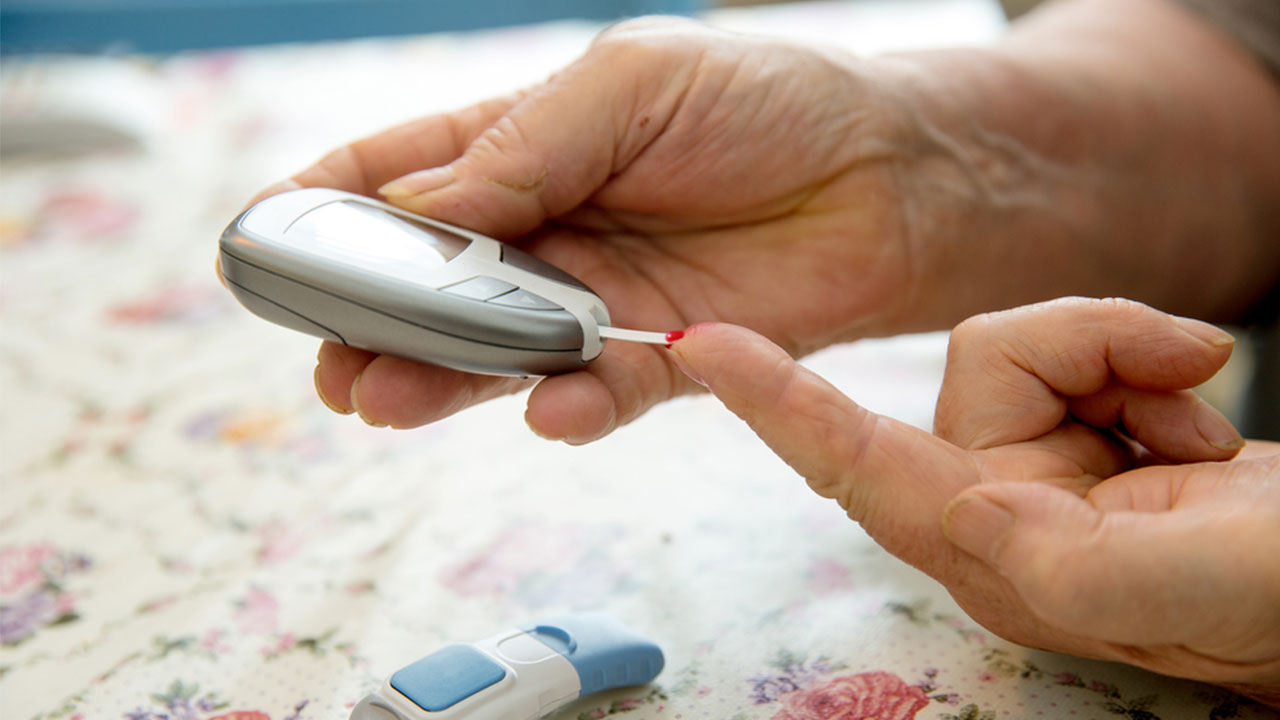Combat High Blood Sugar with Natural Remedies for Insulin Resistance
 By: by Amino Science
By: by Amino Science

Thirty-three percent of Americans are insulin resistant. The good news is that there are natural ways to reverse insulin resistance before it progresses to prediabetes and full-blown diabetes. We've got natural remedies for insulin resistance coming right up, but first, let's get a better understanding of this extremely health-compromising condition.
What Is Insulin Resistance?
Insulin resistance is a metabolic condition that signals the body’s cells’ inability to respond to the hormone insulin. The pancreas secretes insulin, which allows for glucose absorption in your body’s cells under normal conditions. Abnormally high blood sugar, or glucose, levels trigger a copious secretion of insulin, and over time your body may develop an insensitivity or "resistance" to insulin. If your cells, particularly your muscle cells, develop insulin insensitivity, blood sugar levels remain high—which can lead to type 2 diabetes mellitus and other serious diseases, such as high blood pressure, high cholesterol, and arteriosclerosis.
Old age, ethnicity, and genetics are insulin resistance risk factors that you cannot control. For example, if you have a parent or sibling whose metabolic condition has advanced to type 2 diabetes, you are likely predisposed to developing diabetes or associated conditions, e.g., prediabetes or insulin resistance. In such cases, regular testing, lifestyle changes, and medical consultations can help prevent related complications.
Natural Remedies for Insulin Resistance
Uncontrollable risk factors notwithstanding, the quality of your diet and your physical activity levels are usually good indicators of whether you are at risk of developing insulin resistance. In the long run, poor dietary choices and an inactive lifestyle herald one form of illness or another, and the key to reversing insulin resistance and other conditions is to make appropriate dietary changes, such as avoiding processed foods, and start exercising consistently.
Reversing insulin resistance sooner is better. Establishing preventative measures to ameliorate your health puts you in the liberating position to choose less toxic treatment alternatives before more drastic measures are required. Here are several natural remedies for insulin resistance to get you started.
Eat Healthy Foods
Abnormally high blood sugar levels characterize prediabetes—which, like insulin resistance, is a precursor to type 2 diabetes. Prediabetes and insulin resistance symptoms—including blurry vision, regular infections, frequent urination, tingling in legs and feet—can go unnoticed. Your doctor can administer a blood sugar test to check for both blood glucose and high insulin levels. Metformin is a common pharmaceutical drug considered effective at preventing and treating type 2 diabetes. But there are natural alternatives for reducing blood sugar levels and restoring your insulin sensitivity.
Here are some healthy diet tips you can start implementing immediately:
- Drink green tea. A 2014 study in the journal PLoS echoes several studies’ findings that drinking green tea regularly keeps obesity and blood sugar levels in check.
- Stay away from starches. Limit your consumption of starchy foods, like white potatoes, rice, and white breads. These are carbohydrates that turn into glucose in the body.
- Fortify with healthy fats. Supplement your meals with low- or full-fat dairy options. Dairy fat has been linked to improved glucose tolerance and insulin sensitivity.
- Take an essential amino acid supplement. Studies show that essential amino acids help improve insulin sensitivity in type 2 diabetes patients. (Read more about the relationship between insulin resistance and amino acids here.)
-
Enjoy flavorful spices. Spice up your meals and infuse medicinal teas with these natural herbs that combat high blood sugar:
- Gymnema sylvestre helps to eliminate the urge for eating sweets. Some of its medicinal properties may mimic those of insulin, according to one study.
- Garlic improved liver and pancreatic health and reduced beta-cell destruction in diabetic rats in a 2016 study. This aromatic veggie is a blood sugar-reducing and insulin-favorable superfood.
- Turmeric has proved effective at triggering insulin secretion—a restorative property crucial for patients with damaged insulin-producing cells. Turmeric powder is great for seasoning poultry and vegetables.
- Dark chocolate contains polyphenols that have considerable anti-diabetic effect, as stated by preliminary data. Enjoy a cocoa grade of 70% or more alone or as a nutritious meal additive.
- Rosemary exhibited substantial insulin-like characteristics in type 2 diabetic animals. Rosemary is a fragrant herb ideal for accenting soups, infusing olive oil, and roasting vegetables.

Shed Excess Weight
Excess weight, especially in the abdominal region, decreases insulin sensitivity. Hormones secreted by abdominal fat cells may trigger insulin insensitivity.
Insulin resistance may also impede weight loss. The earlier you halt the accumulation of fat cells the greater your chances of reversing insulin resistance. Here are some tips for shedding excess weight:
- Plan your meals ahead of time. If you anticipate a busy workday, pack a nutrient-rich lunch rather than subjecting yourself to whatever is available when mealtime comes around. Fast food menus are usually loaded with trans fats, sodium, sugars like high-fructose corn syrup, and starches—a recipe for type 2 diabetes.
- Eat a high-protein diet. A 2011 study revealed that eating large amounts of protein for treating obesity proved effective. The abundance of oxidized amino acids from these proteins induced satiety, particularly from vegetable proteins.
- Add more gut-cleansing fiber to your diet. Fruits and vegetables are great sources of fiber, and eating low glycemic-index foods in moderation can help satisfy your sweet tooth without you paying a steep price in extra poundage. Replace complex carbohydrates with sensibly-sized whole grain options shown to help reduce the risk for type 2 diabetes.
- Get your omega-3s daily. Fish oil, avocados, and salmon contain omega-3 fatty acids that are particularly effective for reducing belly fat.
- Stay hydrated. Drink plenty of water and avoid soft drinks, which are loaded with sugar.
Increase Your Activity Levels
A sedentary, non-active lifestyle is a major cause for high blood sugar levels, and over time this may lead to insulin resistance. Depending on the type of exercise, you can burn glucose immediately and increase your insulin sensitivity.
A 2018 study in the journal Pediatric Diabetes showed that just one exercise session improved insulin sensitivity for normal weight as well as obese and overweight adolescents. The more muscles that you have to engage, the more glucose you can potentially burn. For maximum effect, try vigorous aerobic exercises and utilize large muscle groups during weight-training segments of your workout. Both types of training increase insulin sensitivity.
Keep in mind that weight loss is not an indicator of glucose-burning success. Muscle mass weighs more than body fat. As you develop major muscle groups, such as your gluteal muscle group in the buttocks region and the quadricep muscles in your thighs, your weight may shift or increase with frequent weight-training exercise.
Improve Sleep Habits
When it comes to maintaining good health, many people consider sleep a low priority. However, lack of regular sleep can lead to a host of complications including heart disease, insulin resistance, and type 2 diabetes. A study published in the journal Diabetes, Nutrition & Metabolism shows that participants deprived of sleep over a 24-hour period developed insulin insensitivity as a result. An average of 8 hours of uninterrupted sleep per night is recommended for most age groups.
Make sleep a top priority in order to reverse insulin resistance. Many factors may adversely affect your ability to get good rest. Eating a heavy meal within two to four hours of bedtime may cause frequent trips to the bathroom and heartburn symptoms throughout the night. A natural, non-allergenic fiber, like cotton, is a good choice for sheets and sleep attire. Sleeping in a dark room that has a slightly cool temperature can make a huge impact on the quality of your sleep.
Reduce Stress
Cortisol and glucagon are hormones that your body produces when it detects stress. Glucagon increases concentrations of fat and glucose in the bloodstream. Cortisol decreases insulin sensitivity by increasing the synthesis of glycogen—a polysaccharide of glucose—in the liver. The glycogen is then converted to glucose, an immediate source of energy.
When you are stressed your body prepares for heightened response. In anticipation of the energy expenditure, your body produces cortisol and glucagon hormones that signal a superfluous need for glucose. Constantly “sweating the small stuff” can lead to big health problems. Always consider how your mental state may affect your overall health. Setting limits, pacing yourself, and taking frequent breaks are just a few ways to diminish daily stress and increase insulin sensitivity.


Up to 25% off Amino
Shop NowTAGS: conditions natural cures
Join the Community
Comments (0)
Most Craveable Recipes




 833-264-6620
833-264-6620



















